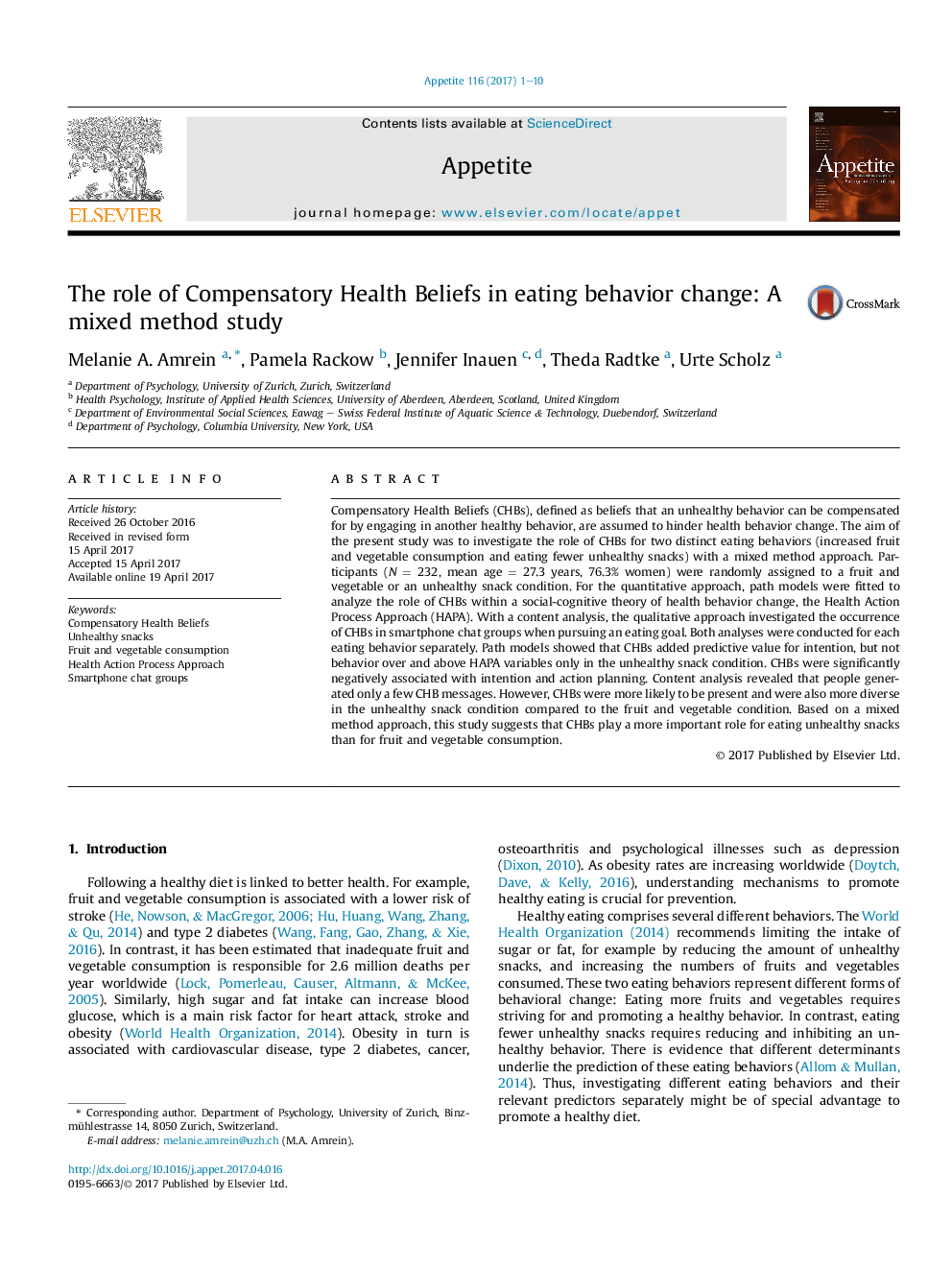ترجمه فارسی عنوان مقاله
نقش باورهای بهداشتی جبران کننده در تغذیه تغییر رفتار: مطالعه روش ترکیبی
عنوان انگلیسی
The role of Compensatory Health Beliefs in eating behavior change: A mixed method study
| کد مقاله | سال انتشار | تعداد صفحات مقاله انگلیسی |
|---|---|---|
| 131481 | 2017 | 10 صفحه PDF |
منبع

Publisher : Elsevier - Science Direct (الزویر - ساینس دایرکت)
Journal : Appetite, Volume 116, 1 September 2017, Pages 1-10
ترجمه کلمات کلیدی
باورهای بهداشتی جبران کننده، تنقلات ناسالم، مصرف میوه و سبزی، رویکرد فرآیند عمل بهداشت، گروه های چت گوشی های هوشمند
کلمات کلیدی انگلیسی
Compensatory Health Beliefs; Unhealthy snacks; Fruit and vegetable consumption; Health Action Process Approach; Smartphone chat groups;

